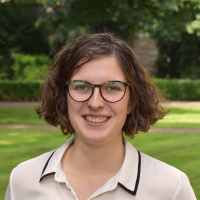Regional Integration Knowledge System (RIKS)

Our globalised world is a complex network of relations that is constantly being re-shaped by state, sub-state, regional and global actors. The Regional Integration Knowledge System (RIKS) cluster aims to shed light on this intricate system of international relations and, especially, its regional dimensions.
UNU-CRIS has developed the RIKS platform to carry out two objectives. First, it provides researchers, policymakers, and journalists with reliable information on regionalisation patterns in the global system and on the evolution of regional organizations. The latter includes information on their membership, the legal content of the treaties on which they are based, as well as the actual level of economic integration they engender. It also includes the collection of data on de facto regional patterns of migration, trade, investment, etc. A dedicated platform has been built for that purpose.
Second, it conducts work on quantitative methods and their application to regionalism studies. This includes estimation methods for coping with missing data (for example, migration data), the application of social network analysis to flow data, as well as the construction of indicator systems to monitor regional integration processes and sustainable development in a multi-level governance context.
Current streams of research within the RIKS cluster include:
- Regional Integration Knowledge System (RIKS) website: a web-based information and learning platform on regional integration processes worldwide (https://riks.cris.unu.edu/).
- Measuring the de jure level of integration in regional organisations: a research project in which we look at the extent to which the legal provisions in regional treaties aim to increase the level of cooperation between their member states
- Improving our knowledge of the de facto level of regional integration, with a specific focus on measuring bilateral migration flows around the world.
- Network analysis of the regional structure and evolution of trade, investment, and migration flows on a global scale.
- Collaborative work on designing indicator systems to monitor regional integration in various world regions and regional organisations.
- Research on indicators on sustainable development in a multi-level governance context
Projects
RIKS 2.0
- Coordinators: Samuel Standaert and Glenn Rayp
- Funding: UNU-CRIS, 2016 - Ongoing
- https://riks.cris.unu.edu/
Untangling the Spaghetti Bowl of Regional Integration
- PhD Fellow: Justine Miller
- Promotor: Samuel Standaert
- Funding: BOF Ghent University (UNU-CRIS Label)
- 01/10/2022 - 30/09/2026
The Direct and Indirect Effects of Economic Integration Agreements
- PhD Fellow: Adelina Sharipova
- Promotor: Glenn Rayp
- Co-promotor: Samuel Standaert
- Funding: FWO
- 1 November 2020 – 31 October 2024
Completed Projects
Book project on Indicator-Based Monitoring of Regional Economic Integration - Fourth World Report on Regional Integration
- Editors: Philippe De Lombaerde and Edgar Saucedo, Springer, 2017
Asia-Europe Relations at a Glance: ASEM Outlook Report 2012
- Project Director: Luk Van Langenhove
- Funding: UNU-CRIS, 2012
Book project on The Regional Integration Manual. Quantitative and Qualitative Methods
- Editors: Philippe De Lombaerde, Renato Flôres, Lelio Iapadre and Michael Schulz, Routledge, 2011
Book project on Assessment and Measurement of Regional Integration
- Editor: Philippe De Lombaerde, Routledge, 2010
Report on the System of Indicators of Eurasian Integration
- Authors: Evgeny Vinokurov, Aleksandr Libman, Philippe De Lombaerde, Natalia Maqsimchook and Yerzhan Moldabekov, Eurasian Development Bank, 2010
- Funding: EDB
Book project on Governing Regional Integration for Development. Monitoring Experiences, Methods and Prospects
- Editors: Philippe De Lombaerde, Antoni Estevadeordal and Kati Suominen, Ashgate, 2008
- Funding: UNU-CRIS and Inter-American Development Bank
Participatory Methods Toolkit: A Practitioner’s Manual (Second Edition)
- Editors: Janice Elliott, Sara Heesterbeek, Carolyn J. Lukensmeyer and Nikki Slocum-Bradley
- Funding: Koning Boudewijn Stichting, 2006
RIKS 1.0
- Researcher: Birger Fühne
- Funding: GARNET Project, European Commission, 2005-2010
- http://cris.unu.edu/garnet









